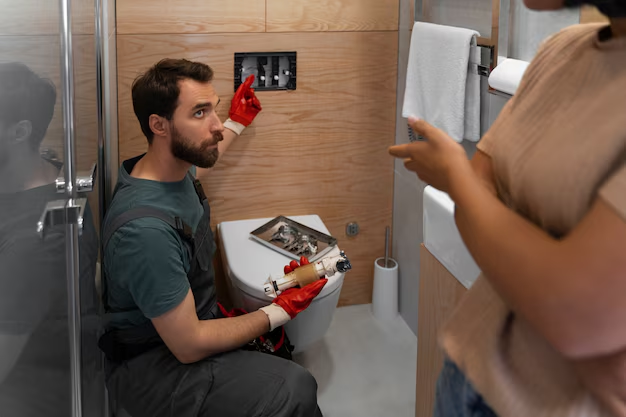Understanding Refrigerator Compressor Failure: Common Causes and Solutions
Refrigerators are an indispensable part of modern homes, quietly humming in our kitchens while keeping food fresh and beverages cool. But what happens when this essential appliance starts malfunctioning? One of the most daunting problems for any homeowner is a refrigerator compressor failure, a vital component responsible for circulating refrigerant and maintaining the appliance's internal temperature. But what leads to such a crucial component failing, and how can you prevent it?
In this article, we’ll explore the most common causes of refrigerator compressor failure, diving deep into what every homeowner should know to maintain their appliance's efficiency and longevity.
Why Compressors Matter in Refrigerators
The refrigerator compressor acts as the heart of the cooling system, creating pressure and circulating refrigerant throughout the unit. Its primary function is to compress the refrigerant vapor, increase its temperature, and propel it through the condenser coils outside the fridge, where it cools and transitions back into liquid form. This cycle is critical in maintaining the desired internal environment of your refrigerator. Without a properly functioning compressor, your fridge can't maintain optimal temperatures, leading to spoiled food and high energy bills.
👷 The Most Common Cause of Compressor Failure
One of the leading causes of compressor failure is overheating. Overheating can occur due to various reasons, from excessive demand on the fridge (such as overstocking) to ambient room temperatures being too high. When compressors overheat, they struggle to maintain the pressures needed to circulate the refrigerant efficiently, leading to wear and eventual failure.
An Overview of Key Contributing Factors
Dust and Dirt Accumulation
- Accumulation of dust around the compressor and condenser coils can act as an insulating layer, significantly reducing a refrigerator's cooling efficiency. This forces the compressor to work harder, leading to overheating.
Faulty Start Relays
- The start relay is responsible for powering the compressor. If the relay becomes faulty, the compressor may fail to start, leading to operational issues. Relays can fail due to age or electrical surges.
Refrigerant Leaks
- A properly sealed refrigerant system is crucial for effective cooling. Leaks can lead to inadequate refrigerant levels, causing the compressor to overwork, eventually resulting in failure.
Electrical Issues
- Frequent power surges or voltage fluctuations can damage the compressor and other electrical components, leading to premature failure.
Improper Usage or Installation
- Compressors may fail if a refrigerator is not level, obstructing oil flow. Additionally, keeping the refrigerator door open too long or frequently can make the compressor work harder than necessary.
🛠️ Identifying Early Signs of Compressor Problems
Early detection of compressor issues can save you from significant repair costs and fridge downtime. Here are some common signs that your refrigerator's compressor might be failing:
- Unusual Noises: A well-functioning compressor should operate quietly. Humming, ticking, or clanking sounds could indicate a problem.
- Inconsistent Temperatures: If your fridge isn't maintaining a consistent temperature, it could be failing to circulate refrigerant properly.
- Increased Energy Bills: A malfunctioning compressor works harder, drawing more power and causing noticeable spikes in energy consumption.
- Frequent Cycling: If the compressor is turning on and off more often than usual, it might be struggling to maintain the required pressure and temperatures.
🔨 Practical Tips to Prevent Compressor Damage
Maintaining your refrigerator’s compressor doesn’t require an engineering degree. Simple, proactive maintenance can significantly prolong its lifespan. Here’s how you can keep your compressor in peak condition:
Regular Cleaning
- Clean the condenser coils at least once or twice a year to prevent dust buildup. This can be done with a vacuum or a brush to ensure efficient heat dissipation.
Check Door Seals
- Ensure the door seals (gaskets) are airtight. Loose seals can let cool air escape, making the compressor work harder to maintain temperature.
Optimal Loading
- Avoid overloading your refrigerator. Ensuring good air circulation inside minimizes energy consumption and reduces undue strain on the compressor.
Maintain Correct Temperatures
- Keep your fridge between 37°F and 40°F (3°C and 4°C) and your freezer at 0°F (-18°C). This prevents unnecessary compressor workload.
Professional Inspections
- Have a professional inspect your refrigerator every few years. They can spot issues that aren’t apparent to the untrained eye and perform necessary maintenance.
👇 Takeaway Summary for Protecting Your Compressor
- 🌡️ Avoid Overheating: Keep spaces around the compressor clear to prevent heat buildup.
- 🧹 Keep It Clean: Regularly clean condenser coils for efficiency.
- 🔌 Steady Power: Use surge protectors to avoid electrical issues.
- 🔍 Watch for Signs: Early intervention can prevent extensive damage.
- 👨🔧 Call the Pros: When in doubt, professional help is worth the cost.
This well-rounded approach ensures your refrigerator remains in top working order, extending its life and keeping your compressor healthy.
When to Call a Technician
Attempting to diagnose and fix a refrigerator compressor issue can be daunting. Most compressor problems require technical skills to resolve safely and effectively. If you’ve identified any of the warning signs detailed above, or if you've been unable to maintain the correct fridge temperatures, it could be time to call in a professional. A qualified technician can provide an accurate diagnosis and determine whether repair or replacement is the best course of action.
In conclusion, by understanding the common causes of refrigerator compressor failure and taking preventive measures, you can minimize the risk of encountering such problems. Protecting your appliance through regular maintenance and keen observation not only extends its life but also ensures efficiency and savings in energy costs. Your refrigerator plays a vital role in your daily life, and a little care can go a long way in maintaining its functionality.

